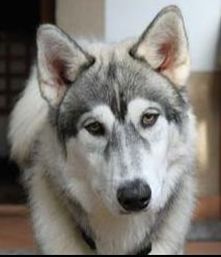
Zinc Responsive Dermatitis in Sled Dogs
Zinc is one of the essential minerals that is supplemented in modern day commercial diets for. There are several different factors that may affect absorption of zinc from the diet. Zinc deficiencies are commonly manifested as zinc responsive dermatitis particularly in northern breeds including malamutes and huskies. Zinc toxicity rarely occurs but overdosing can lead to problems with calcium absorption. Some young puppies and pregnant dogs, as well as performance dogs, or animals with skin problems, may require more supplemental zinc than is being fed in the diet.
Zinc requirements
There have been several studies done on zinc and the racing Alaskan Huskies and those numbers are listed as a comparison.
Growth Stage
Minimum recommended daily amount of zinc in mg/kg of food consumed - Maximum mg that should be fed
Growing puppy 120 - 1000
Adult dog 120 - 1000
Racing sled dogs 150 (Optimum) - 300
Absorption and sources of zinc
Zinc is not considered to be highly absorbable. Studies show that between 5% and 40% of ingested zinc is actually absorbed. There are several factors that influence the absorption of zinc. One of them is genetics.
Generally the northern breed dogs, including Siberian Huskies and Alaskan Malamutes, may have a genetic inability to adequately absorb zinc. Many of these breeds must be fed a diet that is higher in zinc to prevent zinc deficiency associated skin problems. Plants contain a product called phytate, which binds zinc and reduces its absorption. Fiber has a similar effect. Therefore, animals that are fed a diet high in plant material may have an increased risk of developing zinc deficiencies. Calcium also binds zinc, and zinc deficiencies can be produced when excess amounts of calcium are fed. Dogs with inflammatory bowel disease may develop zinc deficiency because of lack of absorption. Zinc is found in higher concentrations in meat and bone than it is in plant sources
Zinc deficiency in the dog most commonly occurs as a skin condition that is called “zinc responsive dermatitis”. The disease is divided into two different syndromes. One affects Siberian huskies and Alaskan malamutes and the other affects puppies on zinc-deficient diets or diets that are over-supplemented with calcium. Alaskan malamutes and Siberian huskies have difficult time absorbing zinc, and if they are stressed or fed a diet high in plant sources or high in calcium they may develop this condition. The usual symptoms are hair loss, and scaling and crusting of the skin around the face, head, and legs. Lesions often encircle the mouth, chin, eyes, and ears. The foot pads may be scaly and the hair coat is dull and dry. Puppies fed a deficient diet may also show these symptoms but may also be lethargic, anorexic, and be prone to secondary infections. Diagnosis is usually made by history, physical exam, and response to zinc supplementation. Treatment with a zinc supplement usually resolves these symptoms within several weeks.
Zinc toxicity
Toxicities to zinc due to over supplementation are very rare. If animals are fed large amounts of zinc supplements, they may be prone to developing copper and iron deficiencies. However, this condition can usually only be created experimentally. Zinc toxicities can occur, however, if an animal would swallow pennies minted since 1982, zinc hardware on transport cages, zinc ointment, or eat or drink from galvanized containers.
Zinc Suppliments
Many products that are used to help improve the quality of the skin coat and hair contain supplemental zinc. It is found in all good vitamin supplements and many fatty acid supplements also contain extra zinc. There is no evidence to show that increased zinc levels improve the immune or athletic performance, but the benefits to the skin and coat are well-documented. Most healthy animals do just fine on the zinc that is supplied in a balanced commercial pet food. If your dog suffers from a skin disorder such as hair loss and excessive shedding, particularly if it is a northern breed, a puppy, or under a lot of stress, a supplement containing extra zinc may be very beneficial, especially if combined with a fatty acid supplement.

